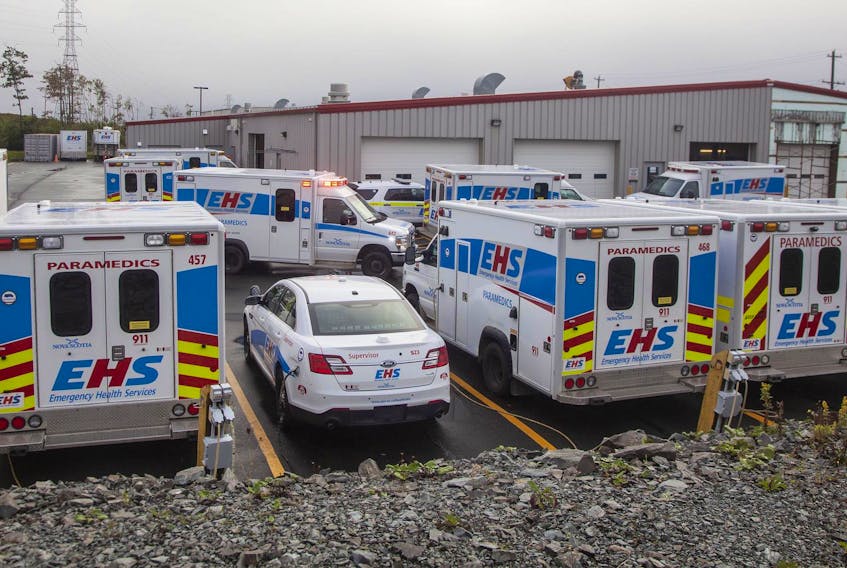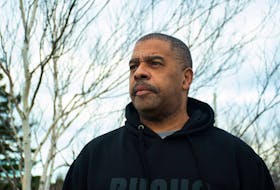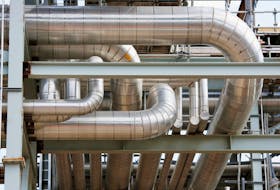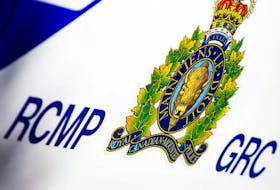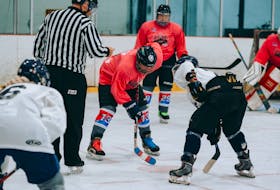Paramedics have a tough job at the best of times.
But when you’re the first person to respond to a medical call amid a major viral outbreak, the difficulty level hits another notch.
“We’re in a pandemic, which is an unprecedented event here in Canada, certainly in Nova Scotia,” said Jeff Fraser, director of provincial operations for Emergency Health Services in Nova Scotia.
It’s always more challenging for the province’s 1,400 paramedics at this time of year because of the flu season.
“We're already using personal protective equipment for certain calls that have respiratory issues that have been brought forward,” Fraser said in a recent interview. “We're already on a heightened awareness around things to reduce the spread of just even the flu.
“This year, with COVID 19, we're aware of specifically droplet spread and it is a pretty resilient virus.”
The EHS medical communications centre advises paramedics when they're on the way to a call of any unusual safety and protection issues.
Minimizing risk
When there's a possibility of viral exposure, they don masks, goggles, face shields, gloves and gowns.
They also ask patients the usual questions when it comes to possible COVID-19 exposure, such as have you had a fever, have you travelled recently or been in contact with anyone who has travelled.
“If we don't know that it's a positive, we call them a patient under investigation and to us when they're under investigation, they have COVID until they're proven they don't and that's how we treat it so we can make sure that we're on top of our procedure.”
It's always important people are honest about their health history with health-care providers, but these days it's crucial.
There's been at least one case of people not disclosing COVID information, which led to the two paramedics who responded having to self-isolate for 14 days.
“We need people to help us help them and not to worry — we're not going to withhold care because you may or may not have been exposed, or may or may not have COVID-19,” Fraser said. “Care will absolutely happen but we need people to be honest and upfront with us so that we make sure that we can protect our frontline staff, which is, you know, we're very vulnerable. They're the ones out there in people's homes.”
For now, people who could have the virus will be taken to the nearest emergency department.
EHS and the Nova Scotia Health Authority have co-ordinated for protocols once they arrive, Fraser said.
“There's a process in place where the NSHA will have a physician come out to the ambulance and assess the patient right in the ambulance bay. Again, we want to minimize … how much movement we do and we want to make sure that we manage any containment issues well."
Reducing exposure for volunteer firefighters
Other moves EHS has taken to reduce COVID exposure risk includes an advisory that volunteer firefighters and other medical first responders in the community not respond to medical calls.
Fire response will be limited to car accidents and extrications of people trapped in vehicles and in homes.
Fraser noted it's possible firefighters would be asked to extricate a person with COVID-19 if absolutely necessary but in general, they wouldn't be involved in COVID cases.
"The fact is (over the next eight to 10 weeks) some of our people are gonna get sick, more people in the community are likely to get sick and so looking at the fact that these people are volunteers and they have dual roles," he said.
"They have fire suppression and rescue duties within their communities on top of the medical first response program. It's not an easy decision for us to make but we believe it to be the right one."

